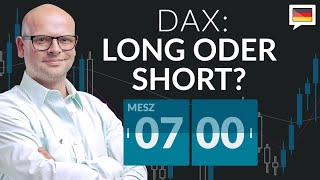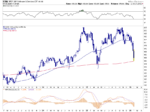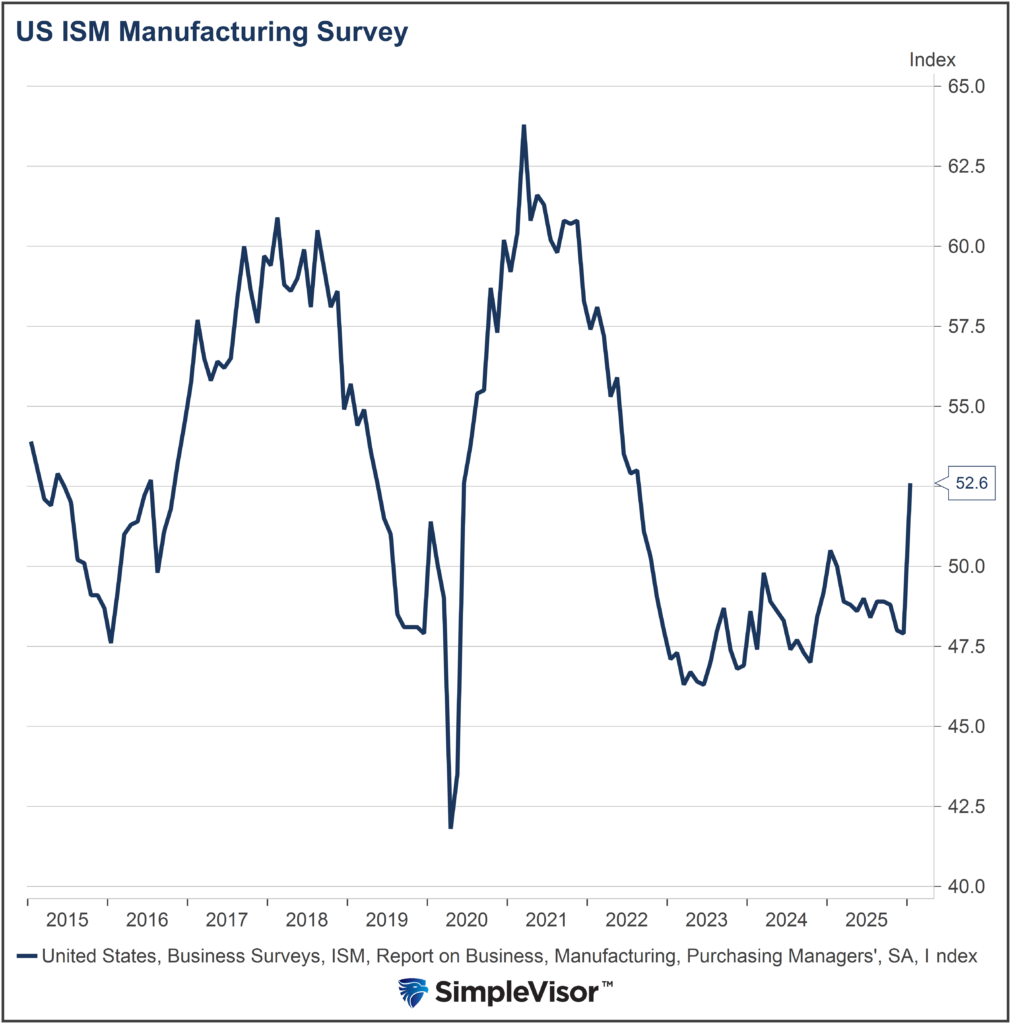Tag Archive: newsletter
Missouri Bill Would End Capital Gains, Invest State Funds in Gold and Silver, Establish State Gold Depository
(Jefferson City, Missouri, USA -- December 14, 2022) - A state senator from St. Charles County has introduced a bill in Missouri to eliminate income taxes on sales of gold and silver, invest state funds in gold and silver, and establish the Missouri Bullion Depository.
Read More »
Read More »
La fine dei Templari (parte 2) Andreas Beck
1307-1314: un processo farsa condannò a morte il più potente ordine militare del medioevo. I templari erano ormai diventati uno dei più ricchi gruppi monastico-militari e il re di Francia, bisognoso delle loro ricchezze, sollevò contro di loro un castello di accuse: pratiche omosessuali, riti magici di iniziazione, blasfemia. Un inquisitore francese sottopose i membri dell'ordine a torture e interrogatori pur di ottenere le prove e le confessioni...
Read More »
Read More »
US Opening Bell mit Marcus Klebe – 23.12.22
HIER geht´s zum kostenlosen JFD Livetradingroom: https://attendee.gotowebinar.com/register/5477297854855570446?source=marcus-social-media
Folge uns auf:
Telegramm: https://t.me/jfdbank_de
LinkedIn: https://www.linkedin.com/showcase/jfd...
Facebook: https://www.facebook.com/JFDGermany/
Twitter: https://twitter.com/JFD_Group
Webseite: https://www.jfdbank.com/de...
Read More »
Read More »
US Opening Bell mit Marcus Klebe – 22.12.22
HIER geht´s zum kostenlosen JFD Livetradingroom: https://attendee.gotowebinar.com/register/5477297854855570446?source=marcus-social-media
Folge uns auf:
Telegramm: https://t.me/jfdbank_de
LinkedIn: https://www.linkedin.com/showcase/jfd...
Facebook: https://www.facebook.com/JFDGermany/
Twitter: https://twitter.com/JFD_Group
Webseite: https://www.jfdbank.com/de...
Read More »
Read More »
US Opening Bell mit Marcus Klebe – 21.12.22
HIER geht´s zum kostenlosen JFD Livetradingroom: https://attendee.gotowebinar.com/register/5477297854855570446?source=marcus-social-media
Folge uns auf:
Telegramm: https://t.me/jfdbank_de
LinkedIn: https://www.linkedin.com/showcase/jfd...
Facebook: https://www.facebook.com/JFDGermany/
Twitter: https://twitter.com/JFD_Group
Webseite: https://www.jfdbank.com/de...
Read More »
Read More »
Was macht der US Markt aus der BoJ Überraschung? – US Opening Bell mit Marcus Klebe – 20.12.22
HIER geht´s zum kostenlosen JFD Livetradingroom: https://attendee.gotowebinar.com/register/5477297854855570446?source=marcus-social-media
Folge uns auf:
Telegramm: https://t.me/jfdbank_de
LinkedIn: https://www.linkedin.com/showcase/jfd...
Facebook: https://www.facebook.com/JFDGermany/
Twitter: https://twitter.com/JFD_Group
Webseite: https://www.jfdbank.com/de...
Read More »
Read More »
“DAX Long oder Short?” mit Marcus Klebe – 23.12.22
HIER geht´s direkt zur LIVE- oder DEMOKONTOERÖFFNUNG:
https://partners.jfdbrokers.com/visit/?bta=35101&nci=5424
Ich freue mich über eure Daumen ???
#DAX #MarcusKlebe #Trading
ÜBER JFD:
WER WIR SIND:
JFD ist eine führende Unternehmensgruppe, die Finanz- sowie Investmentdienstleistungen und -aktivitäten anbietet. Die Muttergesellschaft, JFD Group Ltd, wurde im Dezember 2011 gegründet und ist heute ein international lizenzierter, globaler...
Read More »
Read More »
“DAX Long oder Short?” mit Marcus Klebe – 22.12.22
HIER geht´s direkt zur LIVE- oder DEMOKONTOERÖFFNUNG:
https://partners.jfdbrokers.com/visit/?bta=35101&nci=5424
Ich freue mich über eure Daumen ???
#DAX #MarcusKlebe #Trading
ÜBER JFD:
WER WIR SIND:
JFD ist eine führende Unternehmensgruppe, die Finanz- sowie Investmentdienstleistungen und -aktivitäten anbietet. Die Muttergesellschaft, JFD Group Ltd, wurde im Dezember 2011 gegründet und ist heute ein international lizenzierter, globaler...
Read More »
Read More »
“DAX Long oder Short?” mit Marcus Klebe – 21.12.22
HIER geht´s direkt zur LIVE- oder DEMOKONTOERÖFFNUNG:
https://partners.jfdbrokers.com/visit/?bta=35101&nci=5424
Ich freue mich über eure Daumen ???
#DAX #MarcusKlebe #Trading
ÜBER JFD:
WER WIR SIND:
JFD ist eine führende Unternehmensgruppe, die Finanz- sowie Investmentdienstleistungen und -aktivitäten anbietet. Die Muttergesellschaft, JFD Group Ltd, wurde im Dezember 2011 gegründet und ist heute ein international lizenzierter, globaler...
Read More »
Read More »
CONTROL GLOBAL: MONEDAS DIGITALES. CHINA, RUSIA, AMÉRICA LATINA
#crisis #economia #inversiones #argentina #chile #rusia #china #americalatina #macroeconomía #colombia #dinero
Programa completo aquí: https://www.youtube.com/watch?v=-AceG1iiJD4&t=2775s
Te animo a suscribirte a mi canal y te invito a seguirme en mis redes sociales:
☑ Twitter - https://twitter.com/dlacalle
☑ Instagram - https://www.instagram.com/lacalledanie
☑ Facebook - https://www.facebook.com/dlacalle
☑ Página web -...
Read More »
Read More »
ERZÄHLE ICH NUR VON HIRNGESPINSTEN?
Klicke hier, um Dich gemeinsam mit Oli unabhängig zu machen:
? http://bit.ly/oli-ausbildung
Meine Webseite: https://tradingcoacholi.com/
►Mein Telegram Kanal: http://t.me/tradingcoacholi
►Folge Oliver auf Facebook: http://bit.ly/TOFBpage
►Folge Oliver auf Instagram: http://bit.ly/TOInst
►Oli macht auch TikToks: https://www.tiktok.com/@tradingcoacholi
►Abonniere Oliver auf YouTube: http://bit.ly/Oli-Kanal
DIE TRADING COMMUNITY VON OLIVER KLEMM...
Read More »
Read More »
WION Fineprint | Russian Space Agency: Soyuz MS-22 radiator hit by micro meteoroid
Russia's Soyuz spacecraft MS-22 suffered a three hour long coolant leakage episode on Wednesday night. The untimely leakage forced the Russian space agency to call off its planned six hour long spacewalk of its two astronauts.
Read More »
Read More »
Ukraine-Russia War: Ukraine works to restore power after Russian missiles batter grid | Latest |WION
We are close to the end of the year but it has been 10 long months since Russia invaded Ukraine. Even after witnessing defeat in three Ukrainian cities, Russian President Vladimir Putin is not ready to back down.
Read More »
Read More »
FIAT Currency System In Mortal Danger
In this latest interview, Darryl and Brian Panes from As Good As Gold Australia interview Advisor to AGAGA, Alasdair Macleod.
Read More »
Read More »
Optionshandel – die Grundlagen (+ Geschenk)
Dich erwartet eine komplette Schulung in der "Geheimwaffe der Investoren" - 100% kostenfrei.
Im Kurs lernst Du, hohe Renditen mit minimalem Risiko zu kombinieren - so steigerst Du mit wenigen Handgriffen Deine Gewinne.
Read More »
Read More »
FÜR JEDEN EINEN DEUTSCHEN PASS!
Wirtschaft aktuell: Was passiert jetzt? Jetzt ein Demokonto eröffnen & in Sachwerte kaufen? Negativzinsen durch ein Online Bankkonto umgehen? Macht Forex Trading, CFD Handel und Aktien oder der sichere Hafen Girokonto und Gold Sinn?
Read More »
Read More »
Wird die Credit Suisse Gerettet? ?? #shorts
?Hol dir 100 CHF Trading Credits bei einer Aktien-Depoteröffnung ►► http://sparkojote.ch/swissquote *
(only for swiss residents)
▬▬▬▬▬▬▬▬▬▬▬▬▬▬▬▬▬▬▬▬▬
☛ Die BESTEN Gutscheine aus dem Finanzrudel ☚
Tools die ich tagtäglich nutze findet ihr hier. Mein 6-stelliges Aktien-Depot habe ich bei Swissquote und Yuh. Für meine privaten Finanzen nutze ich Zak von der Bank Cler. Meine Säule 3a für die Altersvorsorge betreibe ich bei frankly der Zürcher...
Read More »
Read More »









































